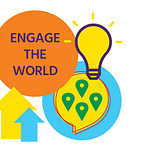Employee engagement and social health are important contributors to a company’s success. Employee loyalty to the company and level of passion for their work are measured by employee engagement. Because it affects consumer happiness, earnings, and productivity, this connection is significant.
Social health is a less talked about but nonetheless important idea. It measures how well people communicate, participate, and form relationships at work, giving a sense of how well they can help others. Furthermore, improved employee engagement is a result of strong workplace relationships.
Meetings in person are vital for building social health in the workplace as they allow for direct communication and the development of stronger interpersonal relationships. These exchanges are essential for building trust, understanding, and collaboration within teams, all of which significantly improve a positive work culture. Furthermore, in-person communication can improve intelligibility and reduce misunderstandings, which boosts the overall happiness and performance at work overall.
Strong social connections at work can increase employee satisfaction by 50%, per a Gallup survey. Moreover, people who work with friends are seven times more likely to be engaged in their work. Furthermore, as Google’s Project Aristotle has shown, a psychologically safe and socially supportive work environment boosts innovation, creativity, and better teamwork. Additionally, these settings greatly reduce workplace stress, which lowers absenteeism and turnover rates.
The Foundation of Social Health in the Workplace
Workplaces that are supportive and productive depend on social health. Furthermore, it focuses around creating strong interpersonal ties, efficient and open communication, and a welcoming environment that values diversity. Employee engagement and general well-being are greatly impacted by this since it creates a culture of respect and belonging.
In the workplace, supportive connections create a network of professional and emotional support, allowing workers to deal with stress and challenges more effectively. Lowering feelings of loneliness and stress and knowing they have supportive and understanding colleagues can improve mental health and overall well-being. Thus, this positive work environment creates community and teamwork, which improves employee satisfaction and engagement even more.
The Impact of Social Health on Employee Engagement
Studies have shown a strong connection between employee engagement and social health. Engaged, enthusiastic, and devoted workers are more likely to feel linked to their coworkers and supported by their employers. In the workplace, supportive connections lower stress, improve job satisfaction, and boost productivity—all of which lead to a more dedicated and engaged workforce. This emphasises how important social wellbeing is to creating a positive work atmosphere.
Workplaces that are unified provide the perfect setting for engagement to grow. Employees in these kinds of settings are more likely to be dedicated, motivated, and have a good attitude towards their jobs and coworkers. This is true because social health addresses the basic human needs of respect, connection, and belonging—needs that have a direct impact on a person’s involvement and investment in their work.
Barriers to Social Health in the Workplace
A Harvard Business Review research article shows the value of social belonging in the workplace. Furthermore, it suggests that despite the fact that social interaction is built in our DNA, a lot of individuals experience loneliness at work. The performance at work might decline from this isolation. According to the essay, organisational commitment and employee engagement can be greatly impacted by a sense of belonging.
Many obstacles and challenges may prevent social health in the workplace. The shift towards remote work has a number of difficulties. Although it offers freedom, it can also result in social isolation and less opportunities for informal interactions that promote social connections and team cohesion. Traditional hierarchical systems are another obstacle because they may create power dynamics that limit open communication and teamwork and make workers feel less engaged and appreciated. In addition, a workplace devoid of diversity and inclusivity may result in a situation where certain workers do not feel empowered to express themselves or feel represented, which may have a detrimental effect on social welfare. Developing purposeful methods to create a more inclusive, communicative, and collaborative work environment is necessary to address these difficulties.
Strategies to Enhance Social Health for Better Employee Engagement
Companies looking to improve social health within their workforces might consult well-established approaches within the industry. Regularly organising team-building events and supporting honest, open lines of communication may greatly improve relationships at work. Further supporting social health can be achieved by creating an inclusive workplace culture where diversity is acknowledged and every worker feels appreciated and understood. These procedures improve the social exchanges amongst staff members and also help to create a more friendly and supportive work atmosphere.
Technology
Technology can help with in-person meetings. Video conferencing tools that let employees in the office and those working remotely see each other in person, regardless of where they are physically located.
scheduling tool
Scheduling tools help effective meeting organisation by making sure that everyone can locate times that work for them. Additionally, meeting functions can be built into collaborative platforms, allowing for a smooth transition from task discussion to real time face-to-face communication.
channels for communication
Creating channels for truthful, open communication is essential. Transparency and trust are created by regular team meetings, feedback sessions, and open-door procedures with management. Salesforce, for instance, improves connectedness and transparency by facilitating smooth team communication through the usage of platforms like Slack.
mentorship programmes
Establishing mentorship programs and support networks can help employees feel valued and supported. These programs offer guidance, foster professional development, and encourage the sharing of knowledge and experiences. Companies like EY have implemented robust mentorship programs that support career development while also enhancing social bonds within the firm. Using tools such as OOt Social Health allows employees to connect meaningfully based on skills, interests, and proximity.
Workplaces with more inclusive and diverse cultures typically have more positive social dynamics. This involves offering every employee equal chances, appreciating and promoting individuality, and establishing safe spaces where a range of opinions can be heard. Leading global companies such as Accenture received recognition for their dedication to diversity and inclusivity, a factor that has greatly improved their employee engagement metrics.
Activities that encourage social interaction outside of regular work tasks can significantly improve social health. This might include team retreats, volunteer days, or social events. Google, for example, is famous for its employee groups and activities that cater to diverse interests, fostering a sense of community and belonging.
to conclude
Productivity and customer satisfaction improve when there is a strong organisational commitment and a lively work environment among staff members. Social health, which places a strong emphasis on relationships and interactions at work, is also essential to creating a supportive atmosphere. Utilising technology to support in-person contacts, provide transparent communication, and encourage inclusivity to overcome the barriers of remote employment are important tactics to improve social health. Getting rid of obstacles like isolation, organisational limits, and diversity concerns is essential to raising engagement and morale at work.
Author: Ethan Wang – PR Liaison – OOt Social Health
Photo credit: StockCake




